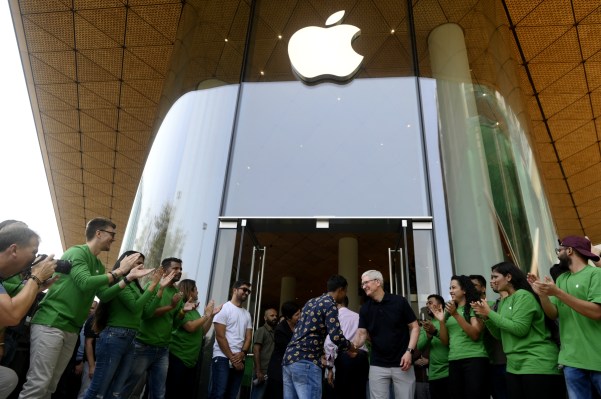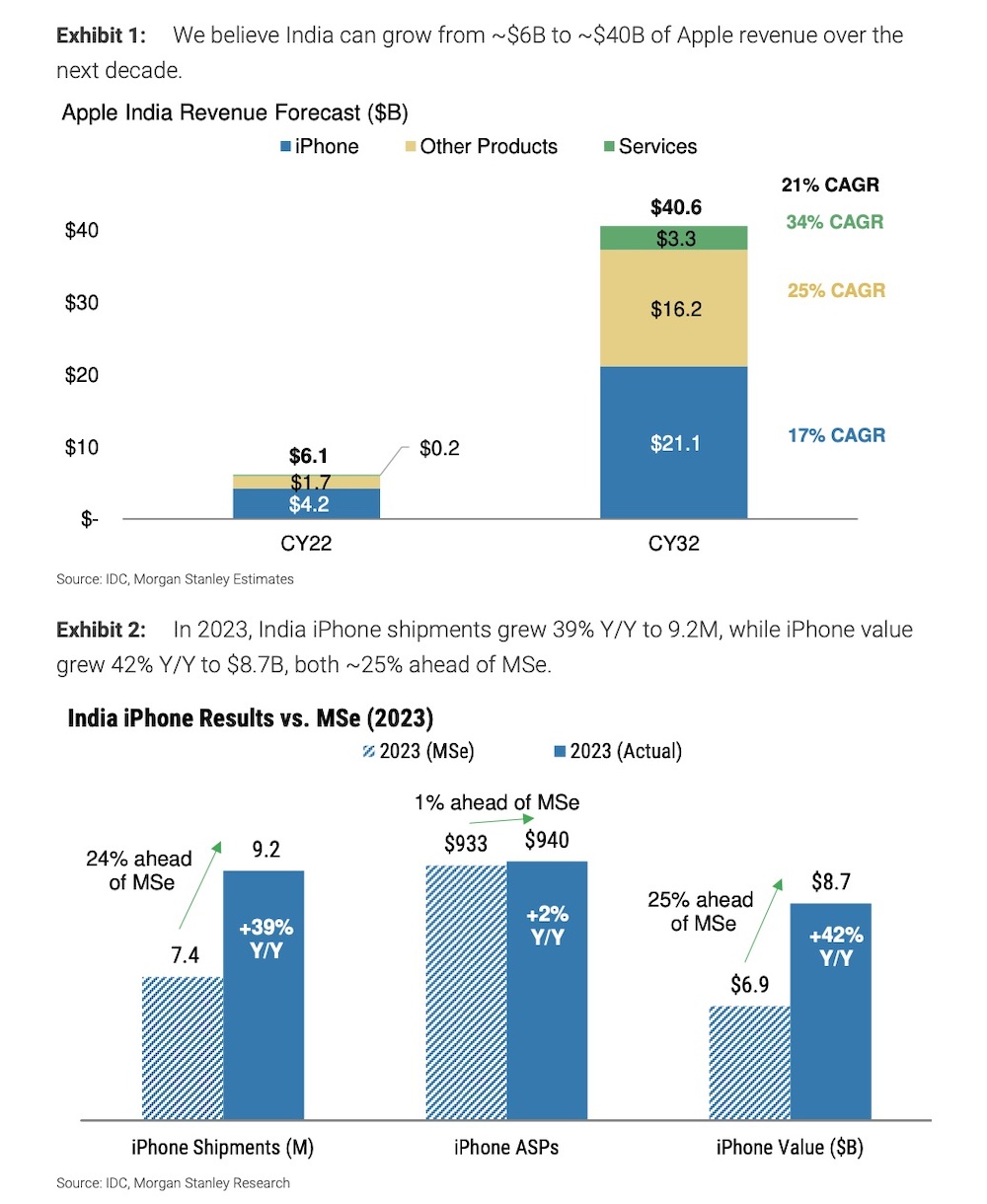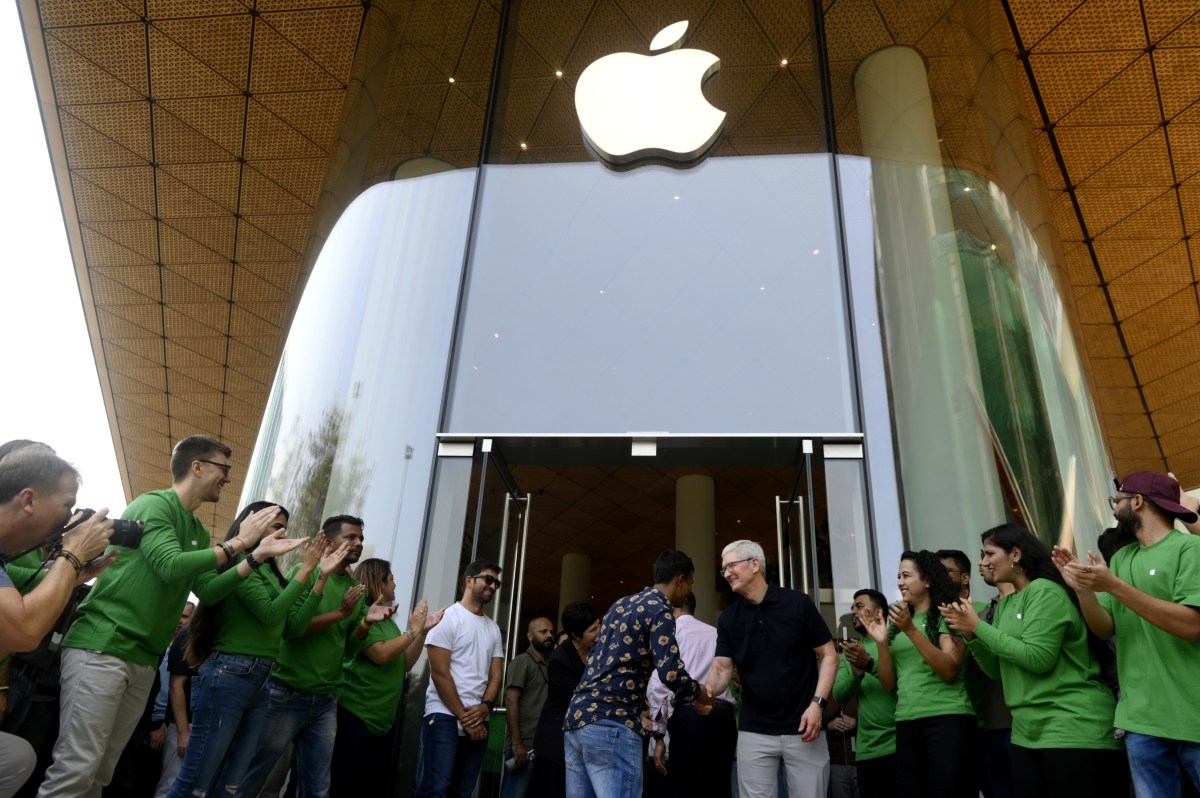India iPhone business outpaces individual EU countries for Apple, Morgan Stanley says | TechCrunch

Apple’s long-term bet on India is beginning to pay dividends. The company’s iPhone revenue in India jumped 42% year-on-year in 2023 to $8.7 billion, Morgan Stanley wrote in a note on Friday.
The iPhone shipments in India grew 39% year-on-year in 2023 to 9.2 million units, making it iPhone’s fifth largest smartphone market. India’s iPhone business is now larger than any standalone country in the European Union, Morgan Stanley added.
“This means that in CY23, India represented 4% of iPhones shipments and revenue, up from 3% in CY22 and 1% 5 years ago. This compares to China iPhone shipments, which represented 20% of iPhone shipments and revenue in CY23 (down 1-2 points Y/Y, respectively),” the analysts wrote.
“Ultimately, this means that India as a standalone market is still not big enough to offset the declines we are seeing in the Chinese market today, but if India continues to grow at the same trajectory while China iPhone shipments stay flat, India would be a bigger iPhone market than China by 2027.”

Driving India’s iPhone growth is increasing consumer demand for premium devices with more storage capacity rather than the latest models. The average iPhone sold in India last year had around 260GB of memory, a 26% increase over 2022, Morgan Stanley said. India’s iPhone average selling prices (ASPs) grew 2% year-on-year to $940 in 2023.
The top five iPhone models shipped in the country were iPhone 13, iPhone 14, iPhone 14 Plus, iPhone 14 Pro and iPhone 15 and they made up 86% of total sales, according to data from research firm IDC, cited by Morgan Stanley. At $940, India’s iPhone ASPs still trail the global average of $1,045 by around 10%.
Apple sees India as a major growth engine going forward, opening its first two retail stores in the country last year. The company is also increasingly shifting its iPhone manufacturing to the South Asian nation. Morgan Stanley estimates the tech giant’s India revenue will reach $40 billion by 2032.




